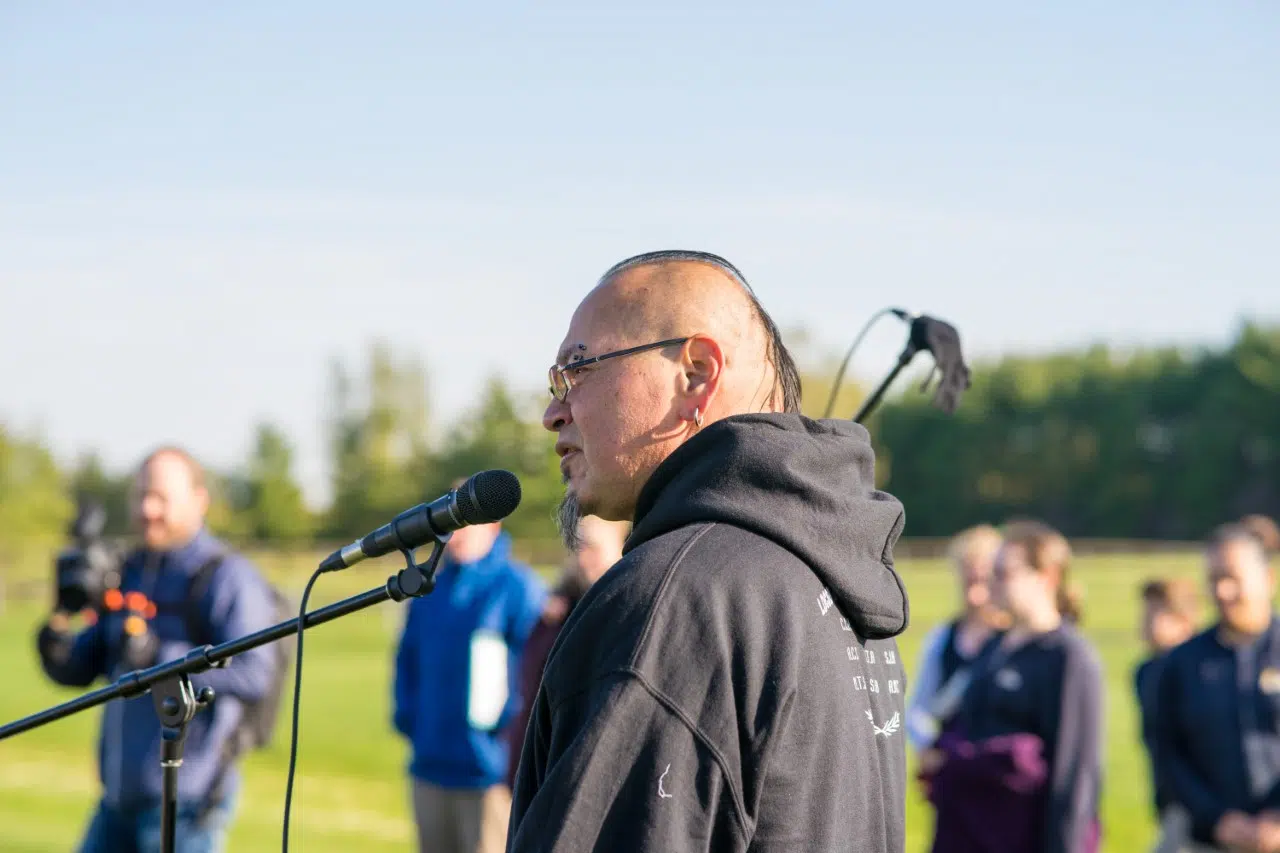
Ray John of Oneida Nation has been awarded for working “tirelessly in the spirit of Truth and Reconciliation” and he stresses only through engaging in tough conversations will Canadians be able to educate themselves on Indigenous culture and the tyranny of residential schools.
And, on this first National Day for Truth and Reconciliation, the Indigenous cultural teacher at the London District Catholic School Board advises the day should be for remembrance and reflection.
Audio PlayerThe main thing today, urges John, is to have tough conversations. He adds, those conversations need to be had regardless of how the opposite person feels.
He points out there are more issues facing Indigenous communities beyond unmarked graves. When this special day is over, stresses John, conversations have to continue to be directed toward issues like access to clean drinking water.
Audio PlayerJohn continues, those are issues we are going to have to talk about now.
“Talk about the clean water, the efficiency of the homes that are not up to par. Our education isn’t up to par.”
As for the thousands of unmarked grave sites discovered this year, John says how the bodies are dealt with in a respectful fashion is an emotional issue for Indigenous Peoples and patience and support are critical.
Audio PlayerThe true impact of National Day For Truth and Reconciliation will only be of value if the engagement continues well into the future to bring about meaningful change, notes John.
Audio PlayerJohn stresses the significance of the slogan ‘Every Child Matters.’
He reminds us, “When we look at that, we’re looking at human rights across the entire country.”
